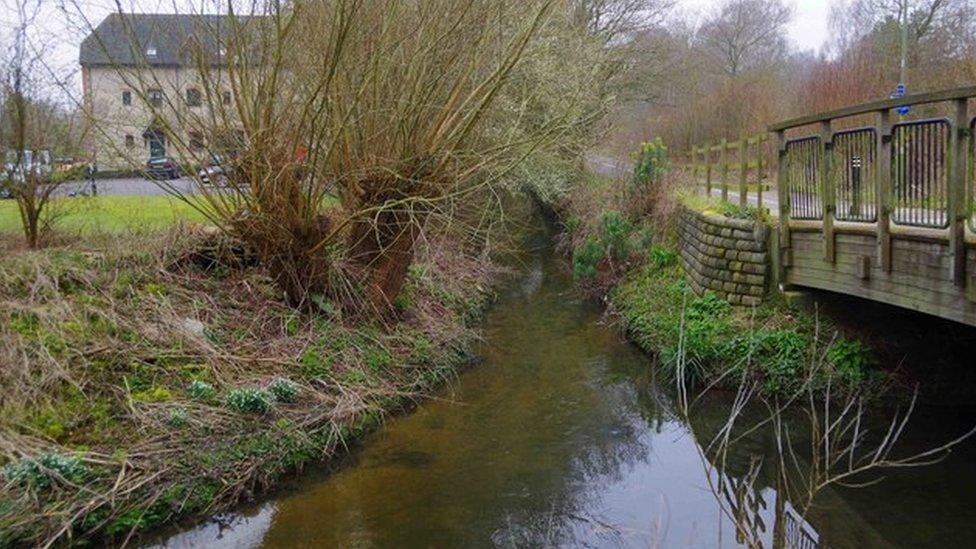Thames Water criticised over Witney river pollution
- Published
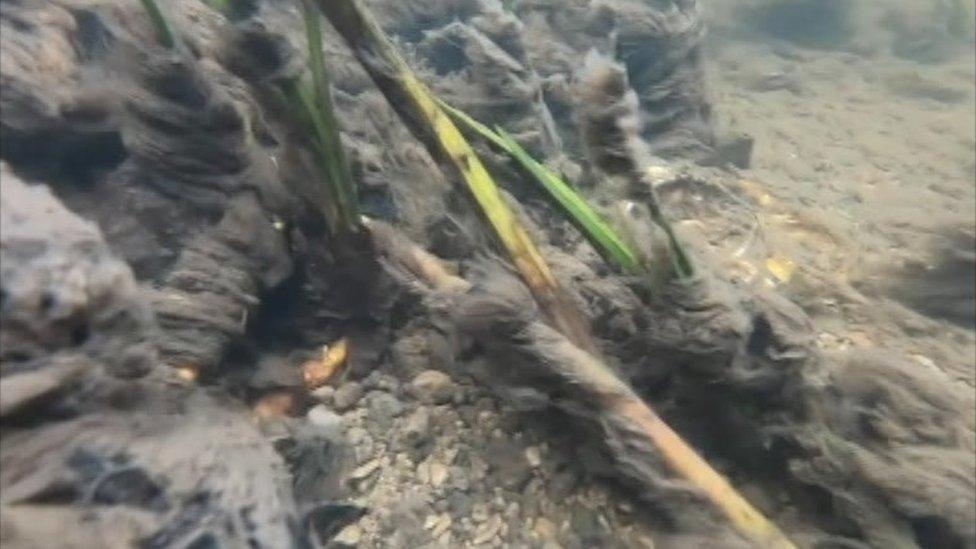
Sewage fungus is growing in waterways, including Colwell Brook, near Witney
Campaigners have accused a water company of not adequately upgrading its sewage network, leading to an increase in raw sewage being dumped in rivers.
Windrush Against Sewage Pollution (WASP) said Thames Water had not been improving infrastructure fast enough to keep pace with new housing.
Sewage fungus has been reported in waterways, including in Colwell Brook.
Thames Water said it had been increasing capacity to accommodate new housing developments.

Singer Feargal Sharkey has been campaigning for better regulation of water companies
Water companies are permitted to discharge raw sewage in exceptional circumstances but campaigners have said untreated waste flowed continuously into Colwell Brook, near Witney, for two weeks last month.
Singer Feargal Sharkey, who is a campaigner for cleaner rivers, said: "Using Witney as an example - that one particular sewage overflow discharged for 1,396 hours - that's the equivalent of 58 days a year. That's one day a week. What an earth is exceptional about one day a week?"
Ashley Smith, of WASP, said: "When you add more sewage to a system and sometimes even adding surface water from some of these housing developments... it will make spilling of untreated sewage more frequent, it will make it go on for longer."
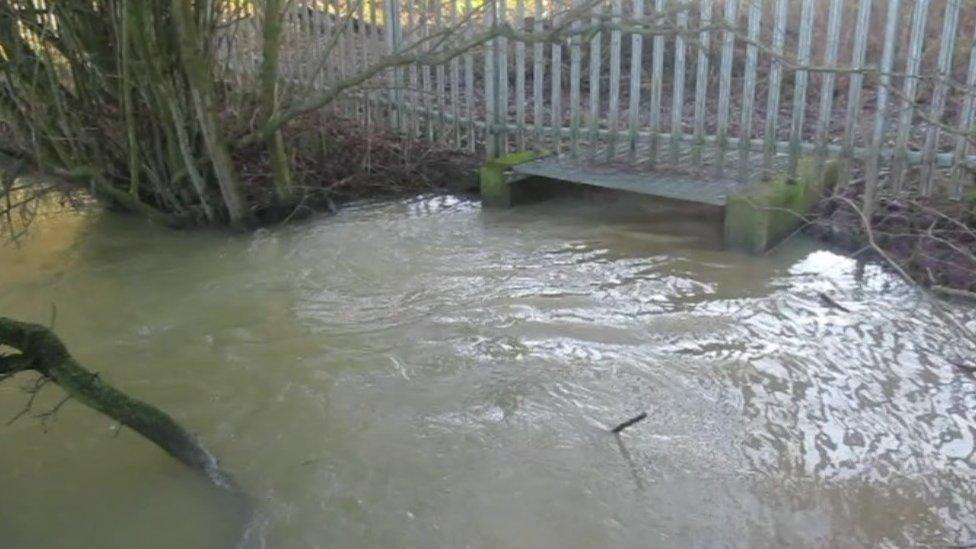
Campaigners filmed raw sewage flowing from Witney treatment works into Colwell Brook
A Thames Water spokesman said: "We will often request conditions are placed on planning applications so new homes are not built or occupied until necessary upgrades are completed.
"We've made improvements to our pipe network and a pumping station, which feed into Witney sewage works, to accommodate new housing.
"We always look at where new developments might be impacting groundwater and increasing surface run-off, both of which can contribute to the sewer system becoming overloaded, so we can ask developers to rectify any issues."
Related topics
- Published11 July 2019
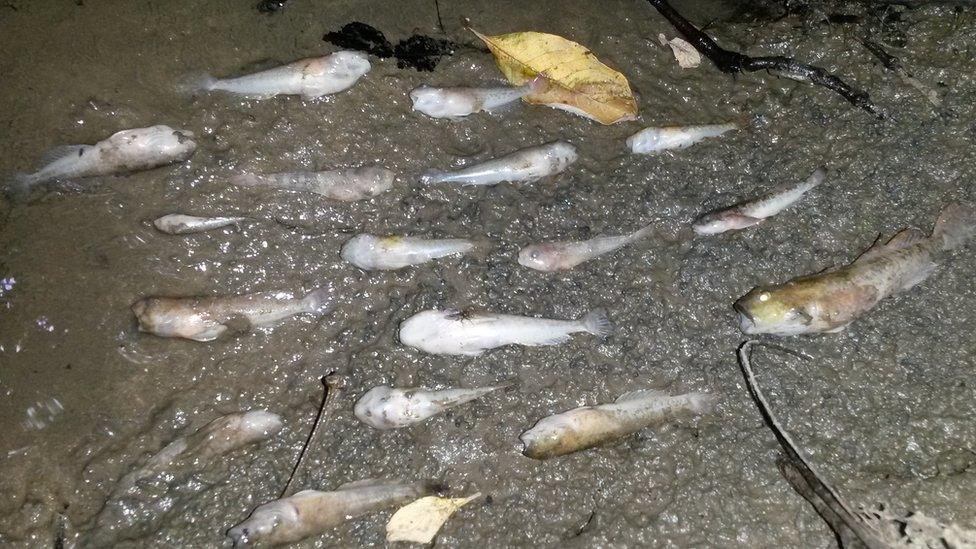
- Published21 December 2018
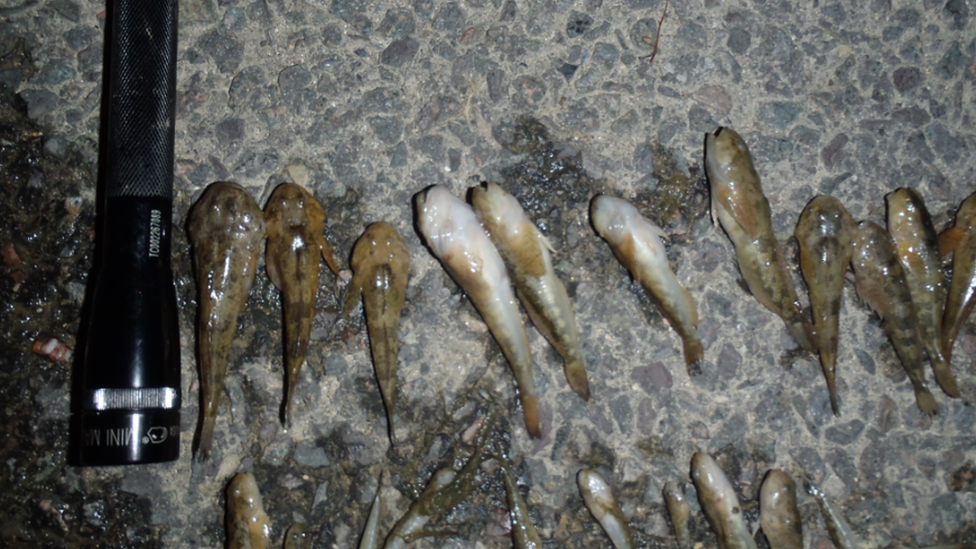
- Published22 March 2017
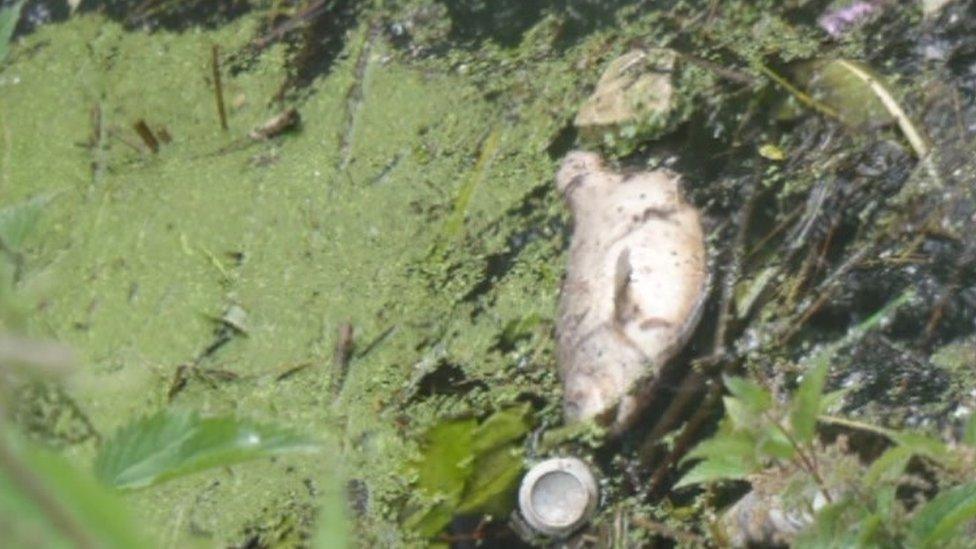
- Published12 October 2016
